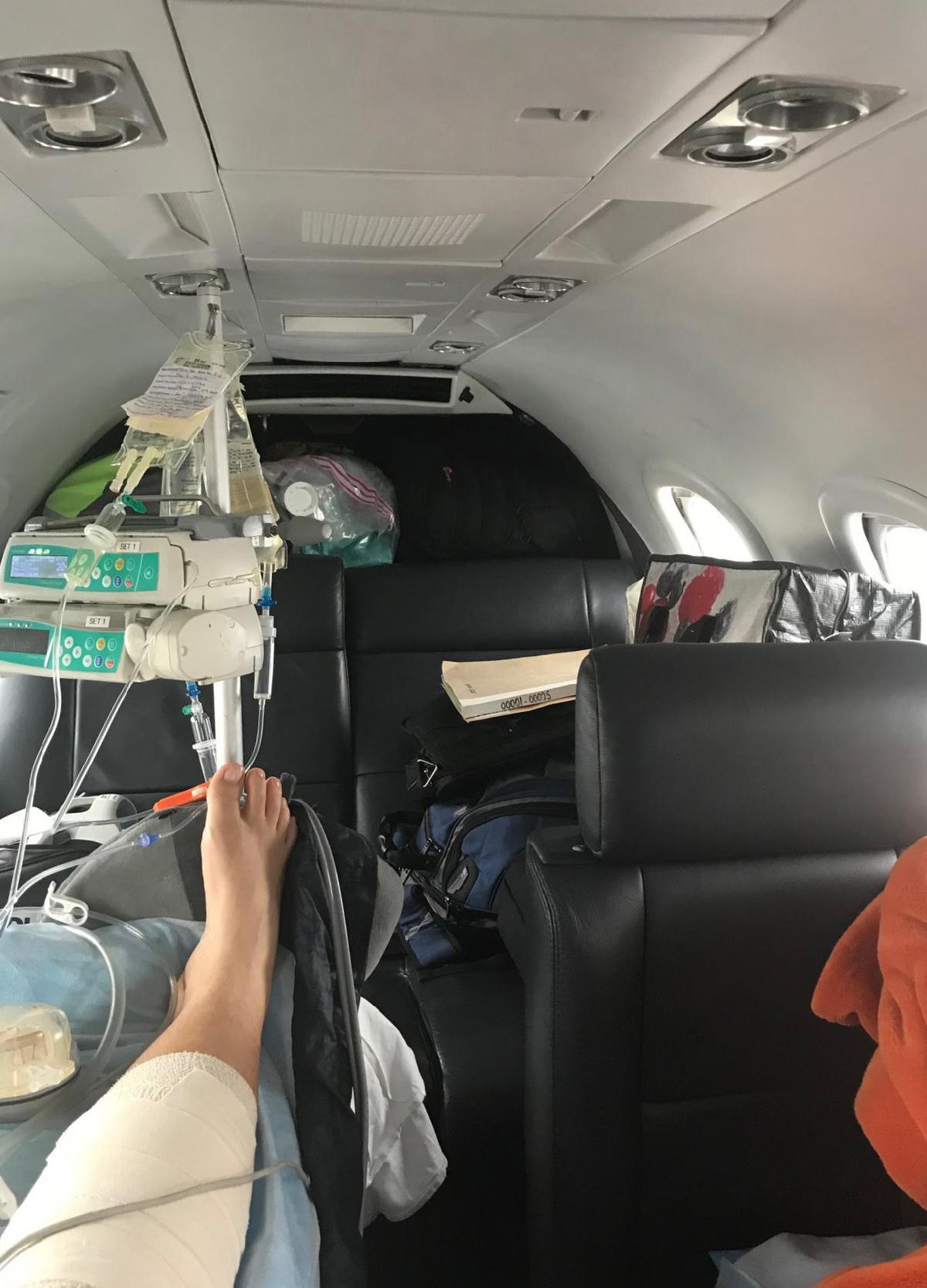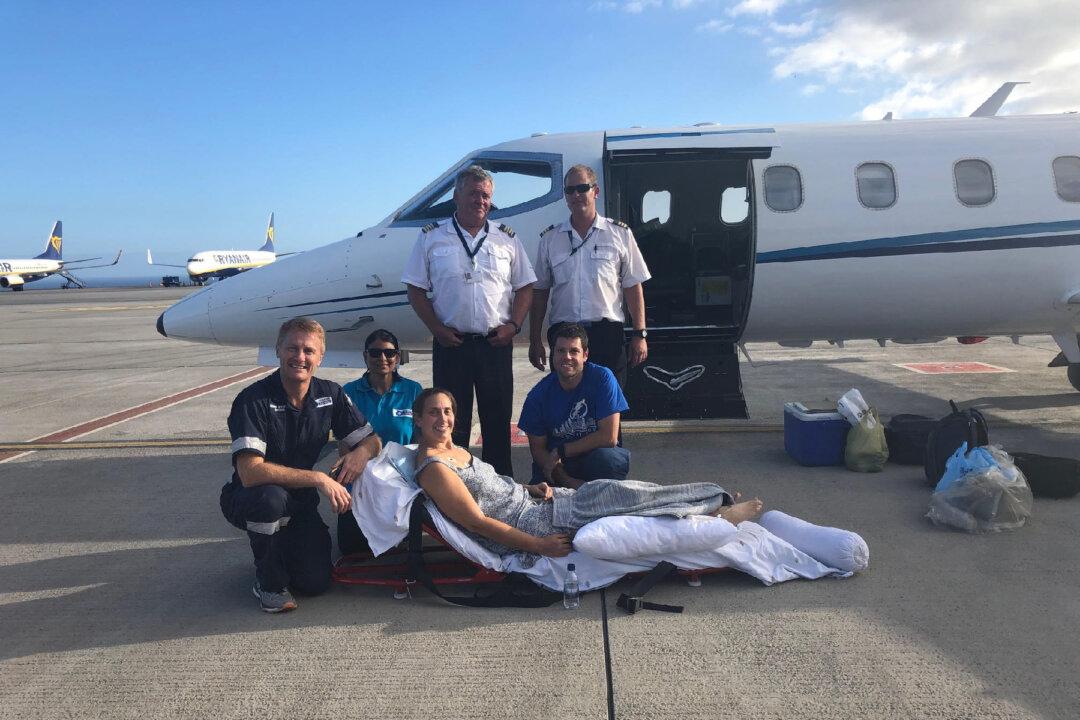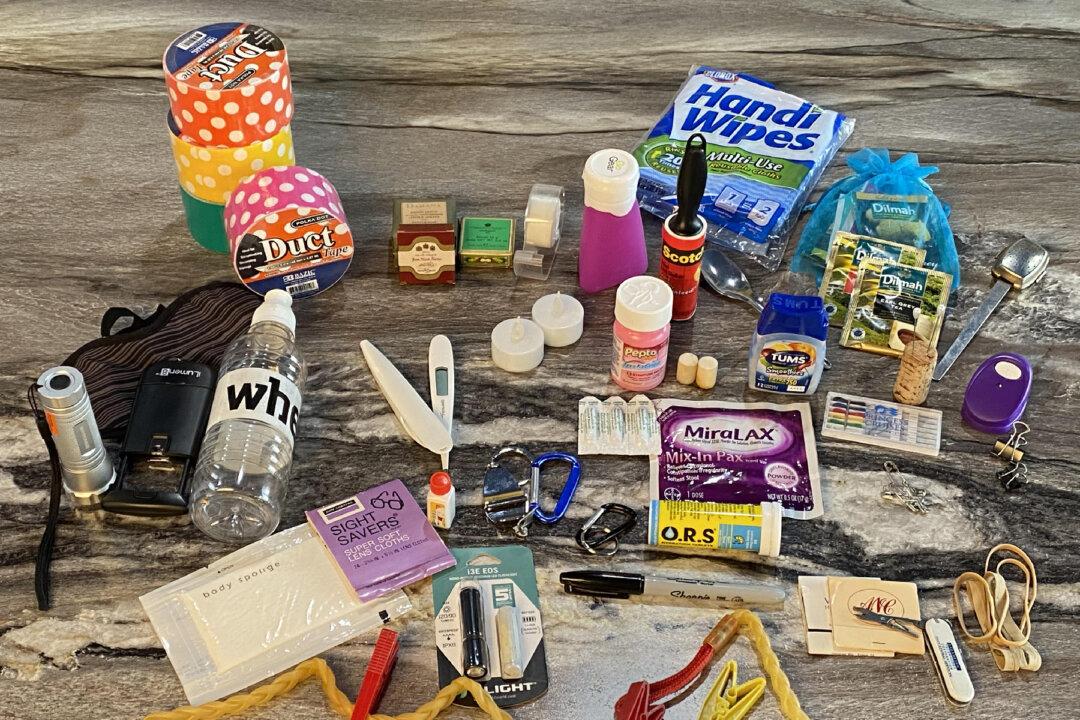Kristen Yaldor was not thinking about travel insurance when a hippo flipped her out of a boat and took a chunk out of her leg while she was on safari in Zimbabwe. In fact, it never occurred to her or her adventuresome husband, Ryan, that they would ever need it. Surviving the attack was only the beginning of a more than two-year ordeal that would include an evacuation first to a local clinic, then to a South African hospital, and finally home to Florida and more than 20 complex surgeries.

Kristen Yaldor waits for takeoff as she's evacuated from Zimbabwe after being attacked by a hippopotamus on the Zambezi River. (Photo courtesy of Ryan Yaldor)





